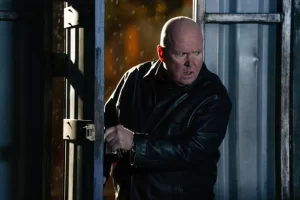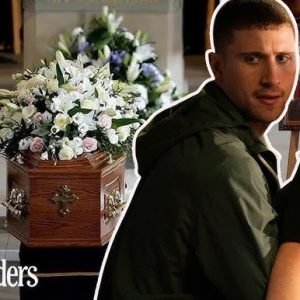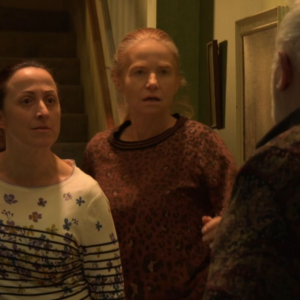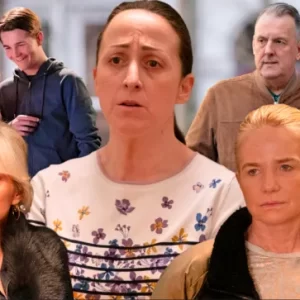In an emotional crescendo that shakes Albert Square to its core, EastEnders dives deep into the fragility of the human mind, the power of friendship, and the crushing fear of becoming a burden. Nigel Bates, the gentle soul who once brought light to Walford’s darkest corners, finds himself spiraling toward a heartbreaking decision—one that leaves even Phil Mitchell reeling.
Nigel’s return to Walford had a hopeful tint. After years away, he came back searching for something—a spark of memory, a flicker of connection, a familiar face in the fog of early-onset dementia. With Yolande Trueman as his first confidante, Nigel gently explained his battle, hoping the Square’s echoes would help him cling to who he used to be.
But as Easter arrives, that optimism begins to crack.
Though he’s surrounded by familiar allies, including his old friend Phil Mitchell, Nigel is no longer the man he once was. Phil’s overprotectiveness, born of love and fear, only heightens Nigel’s sense of helplessness. Determined to prove that he’s still capable, Nigel makes a charming but misguided attempt to reclaim his place—dressing up as the Easter Bunny for a community egg hunt.
For a brief moment, it’s almost magical. But then, tragedy seeps in.

In a heartbreaking slip, Nigel mistakes young Hope for his own daughter Clare, long grown and far away. The innocent confusion turns sour when Harvey Monroe, unaware of Nigel’s condition, confronts him angrily. The incident rattles the community—and forces the truth out into the open.
With Jean, Ian, and Harvey now questioning what’s really going on, Phil finally breaks. In a moment of reluctant vulnerability, he confesses Nigel’s diagnosis to the group. The news sends ripples through the Square, but it’s just the beginning of a deeper tragedy unfolding behind closed doors.
That evening, Phil makes a chilling discovery: a quiet plan hiding in plain sight.
Stumbling upon clues, Phil realizes Nigel has made up his mind to end his life if his memory continues to deteriorate. The revelation hits like a freight train. After all, this isn’t just a friend—it’s a man Phil’s known for decades, someone who’s walked through fire with him and now stands on the edge of a cliff, quietly preparing to jump.
In the moments that follow, Phil attempts to confront him, but Nigel is calm—resigned. He explains his reasoning with a clarity that makes it all the more harrowing: he refuses to fade, to become someone who no longer knows the people he loves or the man he used to be.
Shaken, Phil retreats, desperate for strength. He finds it in Linda Carter, who offers him what Phil struggles to find within himself—compassion without control. Her words light a spark in him. Maybe he can’t fix this, but he can be present, and maybe, just maybe, that could be enough.
But time is not on his side.
Phil races back home, determined to make things right, only to find a goodbye letter from Nigel, ominous and final. Panic floods in as Phil realizes his friend is already gone—heading to the tube station, possibly to follow through on his darkest intentions.
What follows is a raw, emotional encounter that will stay with viewers long after the credits roll. Phil tracks down Nigel, and in a painful, deeply human moment, the two men face each other not as Mitchell and Bates, not as tough guy and sidekick—but as two souls grappling with fear, loss, and love.
Phil begs Nigel to hold on—to not give in to the silence creeping into his mind. But his words fall flat. Nigel listens, but his stance doesn’t change. The idea of living without himself is a fate worse than death in his eyes. Phil is left not with resolution, but with the gut-wrenching weight of powerlessness.





